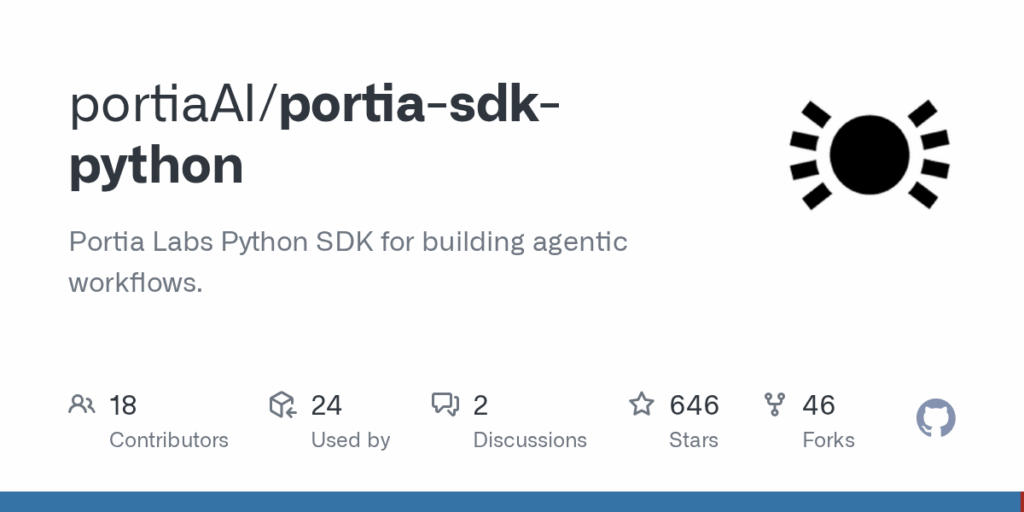portia sdk python
Basic Information
Portia SDK Python is an open source developer framework for building predictable, stateful, authenticated multi-agent workflows. It is designed for developers who need production-ready control over agent behaviour, allowing as much or as little oversight as required across multi-agent deployments. The SDK provides primitives to author, run and monitor agent plans, to enrich run state during execution, and to define deterministic tasks and human:agent clarifications for interactive flows. It emphasizes production concerns such as attribution of runs to end users, secure handling of credentials, large-input memory storage, and support for multiple LLM providers. The repository includes a CLI, examples, and configuration options to connect cloud tool registries, local tools or MCP servers, and is intended to accelerate building, testing and operating agentic systems in real environments.








